From the Archives- Julio's Day (2013)
A simple life doesn’t necessarily equal a life that is simple as Gilbert Hernandez reminds us in Julio’s Day, the story of a man’s 100-year life that spans the 20th century.
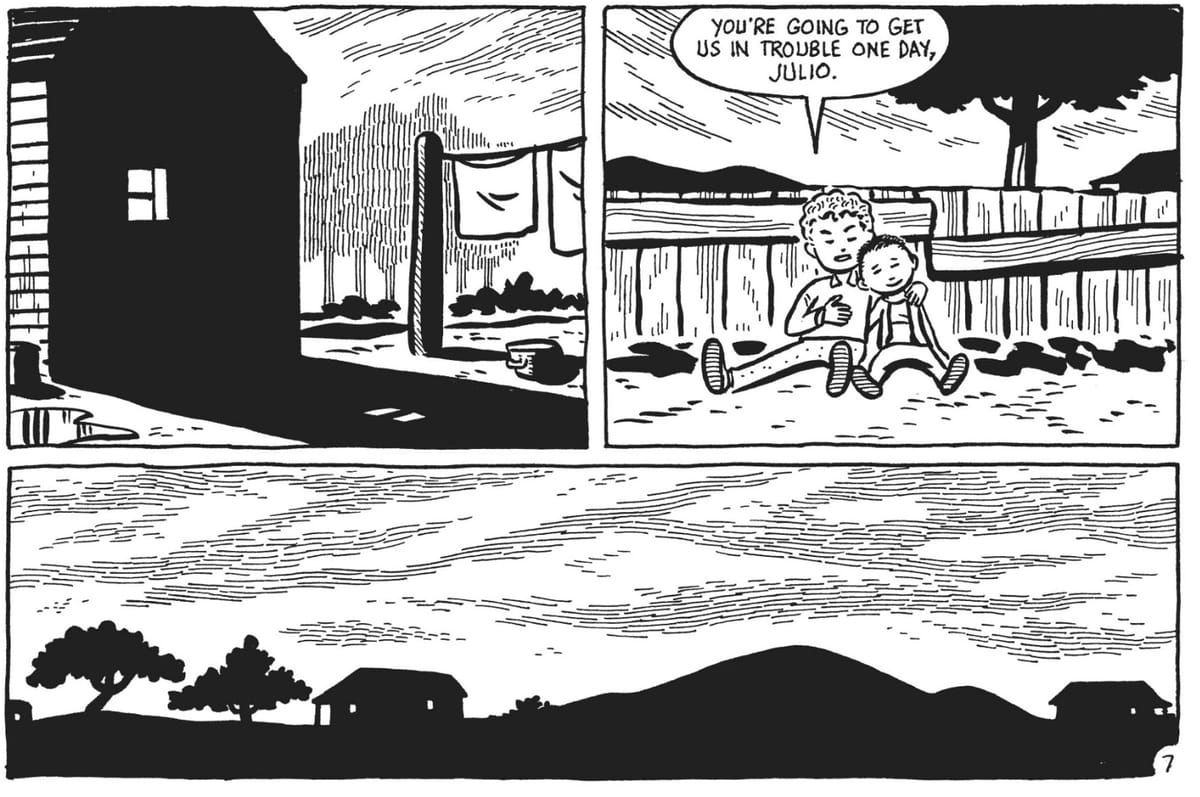
Gilbert Hernandez is one of my favorite cartoonists. He's practically fearless when it comes to storytelling. His Palomar stories are so rich, so surprising, and just so lovely.
Julio's Day shares a lot of the same DNA with the Palomar stories, being character-driven in very rural settings. His recent comics, which still striking, have gone in some wild directions.
This review is from 2013 and is presented as it was originally written with just some of the grammar cleaned up. But there is one part of this story that I feel like I need to revisit sometime soon and clarify my own thoughts on it because I really wonder what I was thinking back in 2013.
Like so many things in Julio's Day, Hernandez isn't writing a story about the life of a gay man. This isn't a story about homosexuality but there are elements of Julio's life that Hernandez touches on that explore Julio's relationships with men and his relationship with society around him.
With a 2022 perspective, this reads to me like I was trying to say, "Julio wasn't gay even though he really was." What could I have meant here? That's the thing with looking back at reviews– sometimes you just can't tell what the perspective you were coming from was. Maybe sometime this summer I'll give Julio's Day another shot and see if I can better unpack, clarify, or even correct myself from 9 years ago.
A simple life doesn’t necessarily equal a life that is simple as Gilbert Hernandez reminds us in Julio’s Day, the story of a man’s 100-year life that spans the 20th century. Following the life of a man from birth to death, with a few detours to track the events of family members, Hernandez builds up these sketches of a life which we easily assemble into a biography of sorts. He hits these big beats in Julio’s life, simultaneously moving us through the story while catching us up on the many years that pass between the panels as these characters grow up, have kids, have grandkids, and eventually die. He does this with the specter of the 20th century in the backdrop as real-world events overshadow the daily life of a simple man.
Well, maybe Julio’s not so simple. Hernandez plays it coy with Julio, a man who lives in times that won’t accept the man he really is. From childhood when a slightly older friend declares "You're going to get us in trouble one day, Julio" to his days as an old man when he chastises his young, gay grand-nephew Julio Juan, "You better keep your talk of a good life to yourself," Julio hides that he shares more with his grand-nephew than just a name. Like so many things in Julio's Day, Hernandez isn't writing a story about the life of a gay man. This isn't a story about homosexuality but there are elements of Julio's life that Hernandez touches on that explore Julio's relationships with men and his relationship with society around him.
In 100 pages, Hernandez paints us a picture of a whole life but we're only visiting with Julio and his family at these separated moments in their lives. We don't stick around long enough with most of these events to see the characters reflect on them, adjust to them and change their lives around them. These moments of crisis that Hernandez invites us into are about the actions and decisions of a particularly charged time. Hernandez barely even gives us the time to reflect on these moments before we're thrusted years later into new focal moments in Julio's lifetime. We're not given much time to judge these characters but we are given moments to sympathize with them as few of the characters are in the lives that they want to be leading.
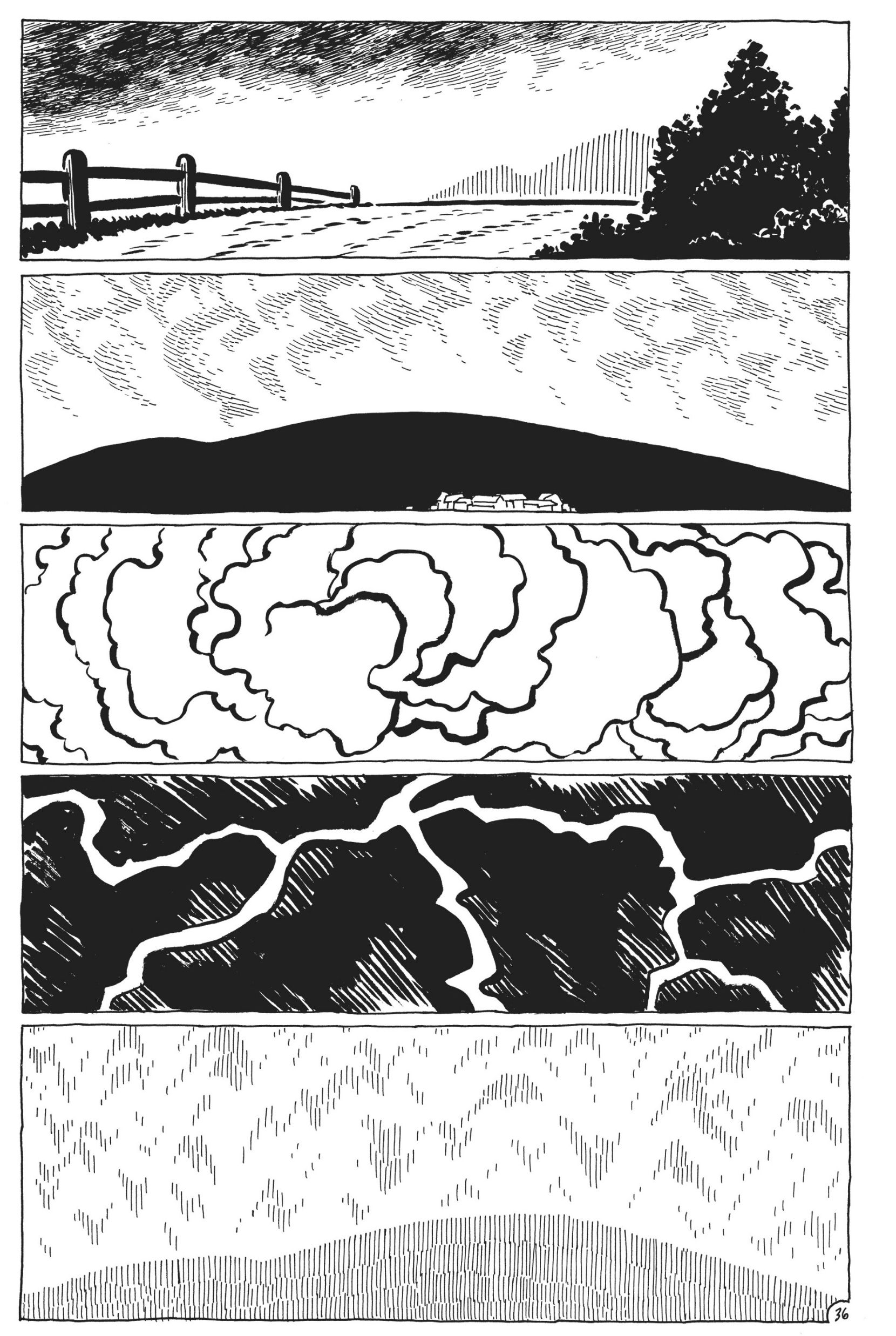
Julio's Day is everything that is lovely about Gilbert Hernandez's storytelling and art. From the rural and familial Palomar stories to his more recent experimental comic "movies," Hernandez has always hidden complicated themes and methods behind very simple-looking stories. Julio's Day brings all of that together, providing a primer for anyone wanting to see what they may be able to find in a Gilbert Hernandez comic. It looks like it would have been simple for Hernandez to expand any of these moments in time into a full story like "Heartbreak Soup" or "Chelo's Burden" but by keeping them these short and snappy stories, Hernandez shows us his interest in moving us through time. Giving us these moments, he lets us really form our own image of these characters without ever telling us who they are from his point of view. The cartoonist gives us these characters and lets us fill in their life stories as we fill in the moments between the panels on any page.
What we've come to expect from a Gilbert story is strong and arresting images and he gives us plenty of those here. The sheer forcefulness of his drawings smacks you with the power of life and of nature. In Julio's Day, he shows us the state of these characters more in their physical representations than in what they do or say. The ways that he protects characters, ages them, beats them up, saves them, and lets them die demonstrates the confident grace of his pen. Every panel is a captured moment, more real and descriptive than any photograph could ever be. Even when he sketches natural events, presenting almost abstract images of clouds, rains and landslides, there's a majesty to the world around us that we hardly ever see presented.
So much of Julio's Day looks simple. From the clean black and white drawings (it would be a crime to ever colorize any of the Hernandez brothers' artwork) to Julio, a man who looks to be more of an extension of his family than a fully realized person, Gilbert lulls us into the story by making it as easy as possible to. But he doesn't stop there because the characters aren't simple. The drawing isn't simple. The 20th century wasn't that simple And no man, no matter how little we may actually know or see about him, is that simple Hernandez is like a comic-making magician, distracting us with something understandable and shiny in his left hand while his right hand is performing these incredible feats that we only understand later after we've had the time to think, to ponder and to appreciate the true magic that we never really saw.
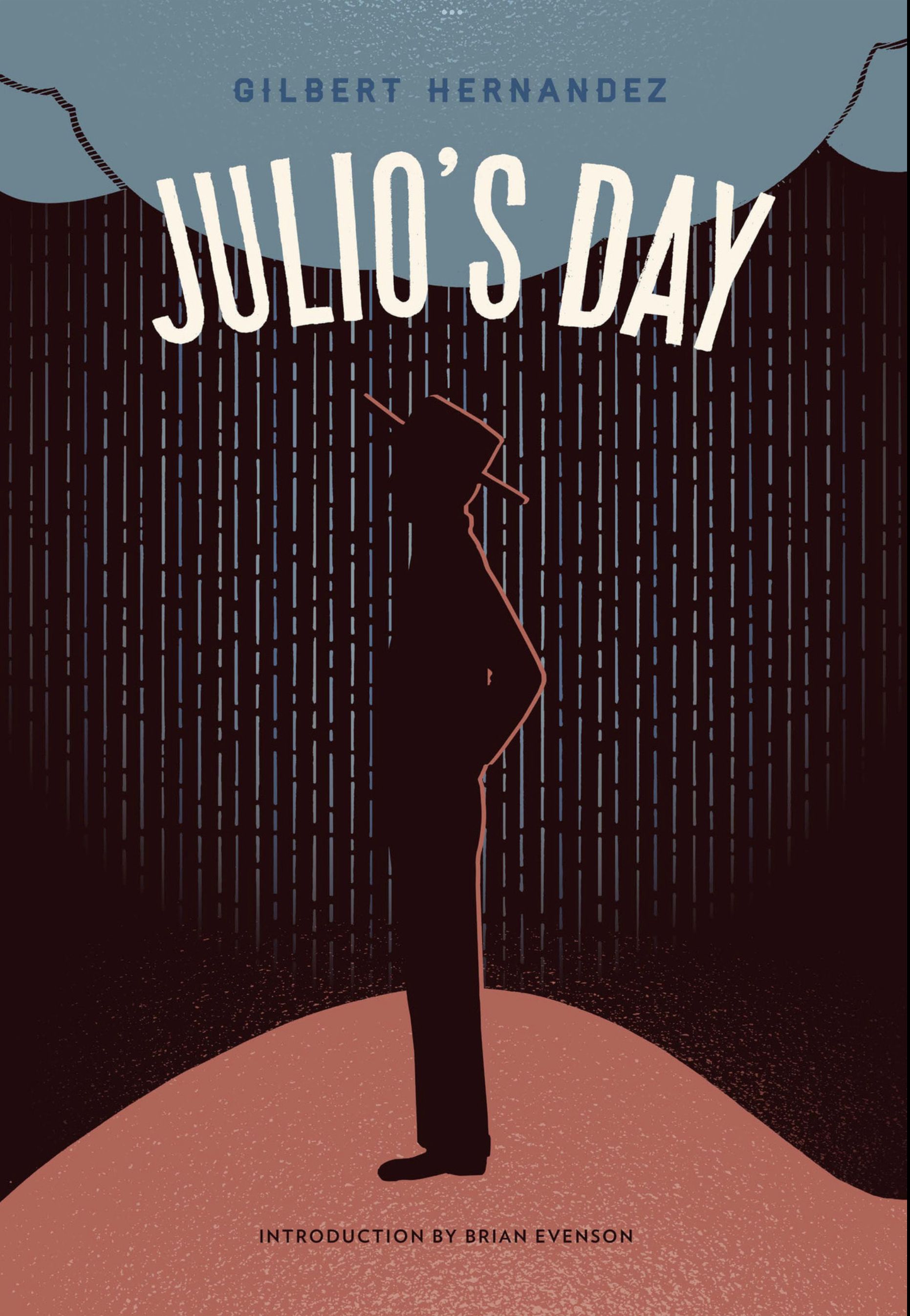


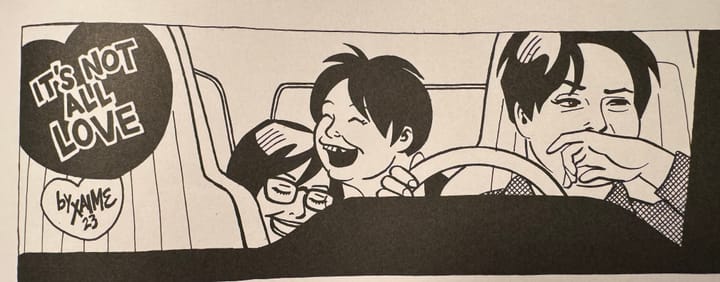
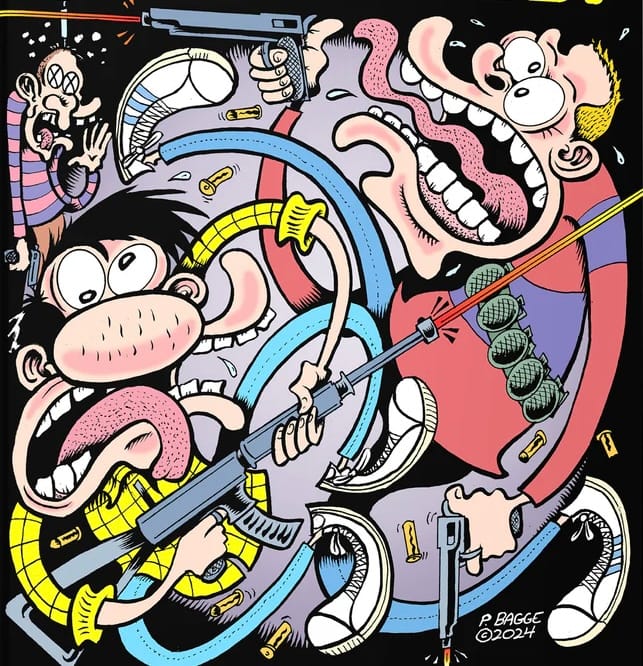
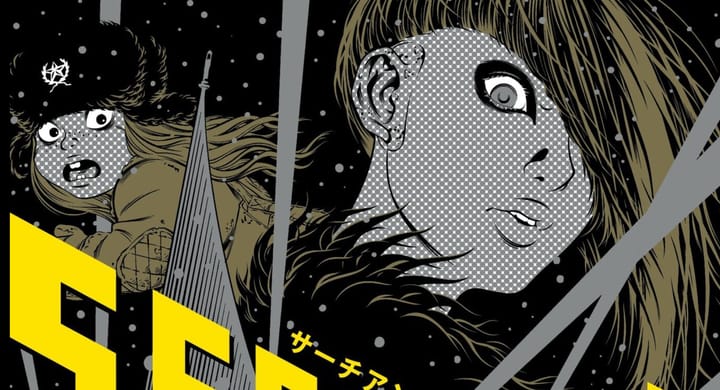
Comments ()